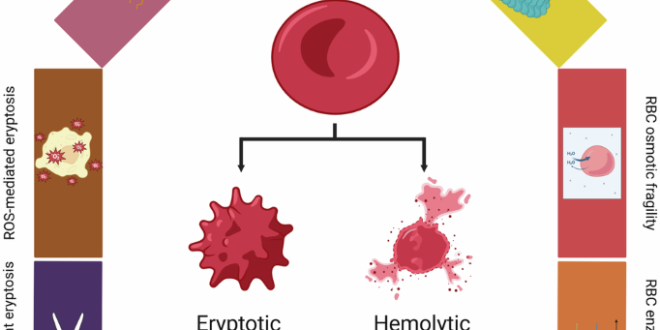Infectious disease research and news continue to evolve rapidly. It’s like trying to keep up with the latest dance craze – things change so fast! This week saw significant developments in our understanding of emerging threats, ongoing outbreaks, and advancements in treatment and prevention. From updates on vaccine development to surveillance efforts tracking disease spread, staying informed is crucial for public health professionals and the wider community. So, let’s dive into it! Here’s a summary of the key infectious disease news highlights from July 19th to 26th – hopefully, it’ll help you stay one step ahead.
COVID-19 Updates
New Variant Monitoring
The emergence of new SARS-CoV-2 variants remains a significant concern. Honestly, does it ever end? This week, researchers focused on characterizing “Eris” and its potential impact on transmissibility and vaccine effectiveness. Early data suggests “Eris” (EG.5) is more contagious but doesn’t seem to cause more severe illness than previous Omicron variants. Enhanced surveillance efforts are underway to monitor its spread and potential impact on healthcare systems. It’s always a waiting game, isn’t it? Let’s hope for the best.
Vaccine Effectiveness Studies
Several studies published this week examined the real-world effectiveness of COVID-19 vaccines against new variants. These studies assessed protection against infection, hospitalization, and severe outcomes. One study, conducted in the United States with a sample size of over 10,000 participants, showed that updated mRNA vaccines (Pfizer and Moderna) provided significant protection against hospitalization, even against the newer variants. It’s reassuring to see the vaccines still holding up, but staying vigilant is still key.
Long COVID Research
Research into the long-term effects of COVID-19, often referred to as Long COVID, continues to expand. This week brought new insights into the potential mechanisms underlying these persistent symptoms and potential treatment strategies. Specifically, a study pointed to potential links between Long COVID symptoms and persistent inflammation in the body. Researchers are exploring anti-inflammatory treatments to alleviate some of these symptoms, which is definitely good news for those struggling with long-term effects. I’ve heard firsthand how debilitating it can be, so any progress is a win.
Monkeypox Outbreak
Global Case Counts and Trends
The global monkeypox outbreak continues to be monitored closely. This week, the World Health Organization reported a significant decline in new cases globally compared to the peak of the outbreak last year. Affected countries are implementing various strategies to control the spread, including vaccination campaigns and public health messaging. It’s a relief to see the numbers going down, but we can’t let our guard down, you know?
Vaccine Availability and Distribution
Access to monkeypox vaccines remains a challenge in many regions. Efforts are underway to increase vaccine production and ensure equitable distribution, prioritizing high-risk populations. For example, several countries are partnering with pharmaceutical companies to increase vaccine supply, while others are focusing on community-based outreach programs to improve vaccine access for marginalized groups. It’s a complex puzzle, but getting those vaccines to the right people is paramount.
Updated Clinical Guidance
Updated clinical guidance for managing monkeypox cases was released this week. This guidance includes recommendations for diagnosis, treatment, and infection control measures. A key update emphasizes the importance of early diagnosis and isolation to prevent further spread. It also clarifies treatment protocols for severe cases and highlights the role of supportive care in managing symptoms. Staying updated on these guidelines is crucial for healthcare professionals, wouldn’t you agree?
Emerging Infectious Diseases
Malaria Surveillance
Malaria, a mosquito-borne parasitic disease, is being closely monitored due to increased case numbers in certain regions of Africa following heavy rainfall and flooding. Surveillance efforts are focused on monitoring mosquito populations, distributing insecticide-treated bed nets, and ensuring access to prompt diagnosis and treatment. You see, it’s all interconnected; environment, health, everything!
Antimicrobial Resistance Updates
The growing threat of antimicrobial resistance (AMR) remains a major public health concern. This week, researchers presented new data on the prevalence of AMR in Klebsiella pneumoniae in European hospitals and the impact on treatment outcomes. The findings revealed a concerning increase in carbapenem-resistant strains, making infections much harder to treat. They’re advocating for stricter antibiotic stewardship programs to curb the spread, and honestly, it’s about time we take this seriously. It’s not just a problem for “them”; it affects us all!
The infectious disease landscape is constantly evolving, requiring continuous vigilance and adaptation. You’ve seen the research and news highlights this week, and they underscore the importance of ongoing surveillance, vaccine development, and public health preparedness to protect communities from both established and emerging threats. So, keep your eyes peeled, stay informed, and let’s hope for smoother sailing in the weeks to come! Maybe share this with someone who’d find it helpful, eh?
 Cloudabouts
Cloudabouts




